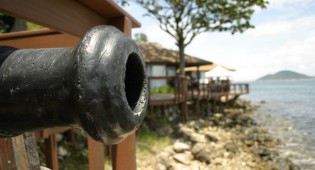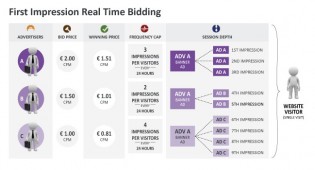AVG: Europe, Balkans Not Safe Places to Surf the Web

YNOT EUROPE – Where in the world are web surfers most likely to be hit by malicious computer attacks or viruses? According to internet security company AVG Technologies, it’s the Caucasus region, with surfers in Turkey, Russia, Armenia and Azerbaijan all being the most likely to face threats while online.
However, at the other end of the scale, some of the world’s safest surfers can be found in Japan and Taiwan, while seven of the 10 safest countries in which to surf the internet are in Africa. As a continent, South America was deemed “safest,” and North America “riskiest.”
Meanwhile, globally any individual’s chances of being attacked while online on any given day are one in 73.
By compiling data for 127 million PCs in 144 countries (including Australia and New Zealand), AVG was able to look at the incidence of security threats its software had to deal with during the last week of July 2010. From these figures, analysts were able to average the likelihood of the average web user facing a security attack.
Among the key results:
• Turkey leads the world in risk to web surfers, with AVG’s software stepping in to protect one in 10 using the internet. Web users in Russia (one in 14 were hit), Armenia (one in 24) and Azerbaijan (one in 39) also suffer high rates of attacks.
• Other areas where web surfers are disproportionately at risk include Bangladesh (one in 41), Pakistan (one in 48), and Vietnam and Laos (one in 42 for each).
• Australia ranked 37th (one in 75 attack ratio), while New Zealand came in at 63rd (one in 103).
• The U.S. resides at No. 9 on the list of riskiest places to go online (one in 48), the UK is ranked 31st (one in 63), while German web surfers come in at No. 41 (one in 83).
• Other major developed nations fared much better with web surfers steering clear of suspicious websites. Though Sierra Leone (one in 692) and Niger (one in 442) were “safer,” looking at broadband penetration in these countries as well as overall internet use reveals surfing the web in Japan (one in 404 attacked) arguably offers the safest experience.
• Meanwhile, Taiwan (one in 248 attacked), Argentina (ine in 241 attacked) and France (one in 224 attacked) all landed among the top 20 of the world’s safest countries for surfers.
Analyzing the data by continent, AVG determined surfers’ chances of getting attacked while surfing the web in North America are one in 51. In Europe, the risk is one in 72, while in Asia (including Asia Pacific) it is one in 102. The safest continents are Africa (one in 108), and by a significant margin, South America (one in 164).
While African countries make up seven of the top 10 “safe surfing” list, it’s noteworthy that the chance of being attacked in all South American countries is more than one in 100. The “riskiest” country in South America was Peru, at one in 131. Globally, however, Peru only ranked 78th out of 142 countries.
“This research tells us a lot about the typical behavior of web surfers worldwide,” said AVG spokesperson Roger Thomson. “Internet users in Turkey, Russia and some Central Asian countries, the Caucasus, Southeast Asian and Indian sub-continent states show disproportionately higher rates of being attacked than the global average of one in 73.
“Some of this may be a tendency to access semi-legal or illegal download sites, while some of it probably is down to being less cautious when it comes to sharing links and files online. For example, it’s worth noting that in Japan, where both internet use and broadband penetration are high, AVG software only picked up a web attack for every 403rd user. Awareness levels in Japan about risky behavior online are probably higher.
“However, our research should also serve as a wake-up call to people going abroad,” Thomson continued. “Very often you may access your files on a computer that doesn’t belong to you, or you may access a shared network — neither of which incidentally are things we would ever recommend. In those cases, we would urge that web users exercise caution, not only when it comes to going online in our top 50 risk list, but in general.
“Finally, the key point is that all these web attacks were successfully caught and stopped by AVG,” he concluded. “Even the global average of facing a one-in-133 attack on any given day does not present great odds if averaged out across a year; hence the importance of making sure that your computer really does have the right anti-virus software installed.”
Comments are closed.






